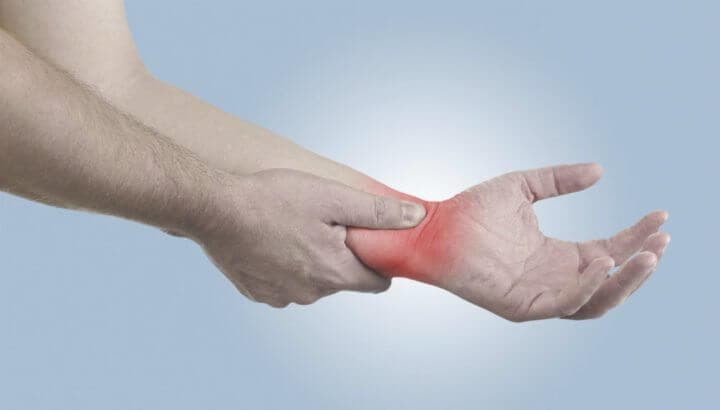Potassium is an essential mineral that has many roles in your body, including regulating muscle contractions, maintaining healthy nerve function, and regulating fluid balance. However, a survey found that approximately 98% of people do not meet the recommended intake for potassium .
A Western diet is likely to be the culprit, as it favors processed foods over whole plant foods, such as fruits, vegetables, beans, and nuts. That said, a low potassium diet is rarely the cause of potassium deficiency or hypokalemia .
Deficiency of this mineral is characterized by a potassium level in the blood below 3.5 mmol per liter. That is, it occurs when your body suddenly loses a large amount of fluid. Common causes include chronic vomiting, diarrhea, excessive sweating, and blood loss.
Know 6 signs that you have a potassium deficiency .

6 signs of potassium deficiency
1. Weakness and fatigue
Weakness and fatigue are often the first signs of a potassium deficiency . There are several ways this mineral deficiency can cause weakness and fatigue. First, potassium helps regulate muscle contractions, and when blood potassium levels are low, your muscles produce weaker contractions.
Deficiency in this mineral can also affect the way your body uses nutrients, leading to fatigue. For example, some tests show that a potassium deficiency can impair insulin production , resulting in high blood sugar levels.
2. Muscle cramps and spasms
Muscle cramps are sudden, uncontrolled contractions of the muscles. They can occur when potassium levels are low in the blood.
Inside muscle cells, potassium helps transmit signals from the brain that stimulate contractions. When potassium levels in the blood are low, your brain cannot transmit these signals as effectively. This is what causes longer contractions like muscle cramps.
3. Digestive problems
Digestive problems can have many causes, and one of them can be a potassium deficiency. Potassium helps transmit signals from the brain to muscles located in the digestive system. These signals stimulate contractions that help the digestive system to churn and propel food so it can be digested.
When potassium levels in the blood are low, the brain cannot transmit signals as effectively. Therefore, contractions in the digestive system can weaken and slow down the movement of food.
This can cause digestive problems like bloating and constipation. Also, some studies have suggested that a severe deficiency can cause the intestine to become completely paralyzed. However, other studies found that the link between potassium deficiency and a paralyzed gut is not completely clear.
4. Heart palpitations
Have you ever noticed that your heart was beating harder, faster or skipping a beat? This is known as heart palpitations and is commonly related to stress or anxiety. However, palpitations can also be a symptom of potassium deficiency. This is because the flow of potassium in and out of the heart cells helps regulate the heart rhythm.
Low levels of potassium in the blood can disrupt this flow, resulting in heart palpitations. Also, these palpitations can be a sign of arrhythmia or an irregular heartbeat, which is also related to potassium deficiency.
Keep in mind that, unlike palpitations, arrhythmia is frequently associated with serious heart conditions.
5. Muscle aches and stiffness
Muscle aches and stiffness can also be a sign of a serious potassium deficiency . These symptoms may indicate rapid muscle breakdown, also known as rhabdomyolysis .
Potassium levels help regulate blood flow to your muscles. When levels are very low, blood vessels can constrict and restrict blood flow to muscles. This means that the muscle cells receive less oxygen, which can cause them to break down and leak. This causes rhabdomyolysis, which is accompanied by symptoms such as muscle stiffness and pain.
6. Tingling and numbness
Those with potassium deficiency may experience persistent tingling and numbness. This is known as paresthesia and generally occurs in the hands, arms, legs, and feet.
Potassium is important for healthy nerve function, and low blood levels can weaken nerve signals, which can cause tingling and numbness.
While occasionally experiencing these symptoms is harmless, persistent tingling and numbness can be a sign of an underlying condition. Therefore, if you experience persistent paresthesia, it is best to consult your doctor.
Reference
- Raman, R. 8 Signs and Symptoms of Potassium Deficiency (Hypokalemia). For Healthline [Revised March 2018]
